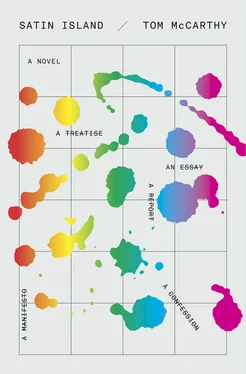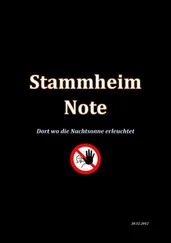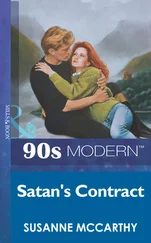Tom McCarthy
Satin Island
Outside, like the cry of space, the traveller perceives the whistle’s distress. “Probably,” he persuades himself, “we are going through a tunnel — the epoch — the last long one, snaking under the city to the all-powerful train station of the virginal central palace, like a crown.”
— Mallarmé
1.1Turin is where the famous shroud is from, the one showing Christ’s body supine after crucifixion: hands folded over genitals, eyes closed, head crowned with thorns. The image isn’t really visible on the bare linen. It only emerged in the late nineteenth century, when some amateur photographer looked at the negative of a shot he’d taken of the thing, and saw the figure — pale and faded, but there nonetheless. Only in the negative: the negative became a positive, which means that the shroud itself was, in effect, a negative already. A few decades later, when the shroud was radiocarbon dated, it turned out to come from no later than the mid-thirteenth century; but this didn’t trouble the believers. Things like that never do. People need foundation myths, some imprint of year zero, a bolt that secures the scaffolding that in turn holds fast the entire architecture of reality, of time: memory-chambers and oblivion-cellars, walls between eras, hallways that sweep us on towards the end-days and the coming whatever-it-is. We see things shroudedly, as through a veil, an over-pixellated screen. When the shapeless plasma takes on form and resolution, like a fish approaching us through murky waters or an image looming into view from noxious liquid in a darkroom, when it begins to coalesce into a figure that’s discernible, if ciphered, we can say: This is it, stirring, looming , even if it isn’t really, if it’s all just ink-blots.
1.2One evening, a few years ago, I found myself stuck in Turin. Not in the city, but the airport: Torino-Caselle. Lots of other people did too: nothing was taking off. The phrase Await Announcements multiplied, stacked up in columns on the information screens, alternately in English and Italian. What was causing the delay was a rogue aeroplane, some kind of private jet, which, ignoring all instructions, was flying in idiosyncratic patterns over Southern England and the Channel; which meant that no other planes could penetrate that swath of airspace; which in turn, via the series of switches and transfers and reroutings that had been put in place to deal with the whole situation, had spread a huge delay-cloud over Europe. So I sat, like everyone else, sifting through airline- and airport-pages on my laptop for enlightenment about our quandary — then, when I’d exhausted these, clicking through news sites and social pages, meandering along corridors of trivia, generally killing time.
1.3That’s when I read about the shroud. When I’d done reading about that I started reading about hubs. Torino-Caselle is a hub-airport. There was a page on their website explaining what this is. Hub-airports are predominantly transfer points, rather than destinations in and of themselves. The webpage showed a diagram of a rimless wheel, with spokes of different lengths all leading to the centre, such that communion between any two spots on the wheel’s surface area was possible despite no direct line connecting these. It looked like Jesus’ crown, with all its jutting prongs. A link took me to an external page that explained how the hub-model was used in fields ranging from freight to distributed computing. Soon I was reading about flanges, track sprockets and bearings in bicycle construction. Then I clicked on freehub . These incorporate splines — mating features for rotating elements — and a ratchet mechanism, built into the hub itself (rather than adjacent to or above it, as in previous, non-freehub models), whose temporary disengagement permits coasting.
1.4To a soundtrack, incongruous, of looped, recorded messages and chimes, a fruit-machine’s idle-tune, snatches of other people’s conversations and the staggered, intermittent hiss, quieter or louder, of steam-arms at espresso bars dotted about the terminal, a memory came to me: of freewheeling down a hill as a child, riding my second bike. It wasn’t a specific memory of riding down the hill on such-and-such a day: more a generic one in which hundreds of hill-descents, accumulated over two or three years, had all merged together. Where my first bike had had a footbrake, activated by the pedal, this one, fitted with a handbrake instead, allowed backpedalling. This struck me, I remembered, as nothing short of miraculous. That you could move one way while rotating the crank in the opposite direction contravened my fledgling understanding not only of motion but also of time — as though this, too, could be laced with a contraflow lodged right inside its core. Whenever I hurtled, backpedalling, down the hill, I’d feel exhilaration, but also vertigo — vertigo tinged with a slight nausea. It wasn’t an entirely pleasant feeling. Recalling the manoeuvre now reproduced — in the crowded terminal, in my head and stomach — the same awkward sense of things being out of sync, out of whack.
1.5Around me and my screen, more screens: of other laptops, mobiles, televisions. These last screens had tickers scrolling across them, text whose subjects included the air delay in which I was caught up. Behind the tickers, news footage was running. One screen showed highlights of a football game. Another showed the aftermath of a marketplace truck bombing somewhere in the Middle East, the type of scene you always see in this kind of report: hysterical, blood-spattered people running about screaming. One of these people, a man who looked straight at the camera as he ran towards it, wore a T-shirt that showed Snoopy lounging on his kennel’s roof, the word Perfection hovering in the air above him. Then the scene gave over to an oil spill that had happened somewhere in the world that morning, or the night before: aerial shots of a stricken offshore platform around which a large, dark water-flower was blooming; white-feathered sea birds, filmed from both air and ground, milling around on pristine, snowy shorelines, unaware of the black tide inching its way towards them; and, villain of the piece, shot by an underwater robot, a broken pipe gushing its endless load into the ocean.
1.6My phone beeped and vibrated in my jacket. I took it out and read the message I’d received. It came from Peyman. Peyman was my boss. It said: We won. That was it. Two boys ran past me; one fell down; his brother jolted to a halt, backtracked a few paces and roughly pulled him to his feet; they ran on. I looked up again at the television monitor on which the football game was showing. The goal I’d seen a moment earlier was replaying in slow motion. The ball’s trajectory, the arc it followed as it cleared defenders’ heads and keeper’s hands, the backspin of its hexagons and stars, the sudden buckle and eruption of the net’s neat grid as the ball hit it — this sequence now aligned itself with these words sent to me by Peyman: We won. I looked at the screen’s upper corner, where the scoreline was displayed, to see which teams were playing. Barcelona and Bayern Munich. I texted him back: Who won what? Company won Project contract, he responded half a minute later. This I understood. The Company was our company, Peyman’s company, the company I worked for. The Project was the Koob-Sassen Project; we’d been going after the contract for some time. Good, I texted. The answer came more quickly this time: Good? That’s it? I deliberated for a few seconds, then sent back a new message: Very good. His next text crossed with mine: You still stuck in transit? I confirmed this. Me too, Peyman eventually informed me; in Vienna. Come see me tomorrow a.m. Then a message came from Tapio. Tapio was Peyman’s right-hand man. Company won KSP contract, it said. Two more, from other colleagues, followed in quick succession, both conveying the same news. The effects of my chance exposure to this football game lingered after I’d read these; so it seemed to me that Bayern Munich’s striker, roaring with delight towards the stands, was rejoicing not for his own team and fans but rather for us; and it even seemed that the victim with the Snoopy shirt on, as he ran screaming towards the camera, was celebrating the news too: from his ruined market with its standard twisted metal and its blood, for us.
Читать дальше












